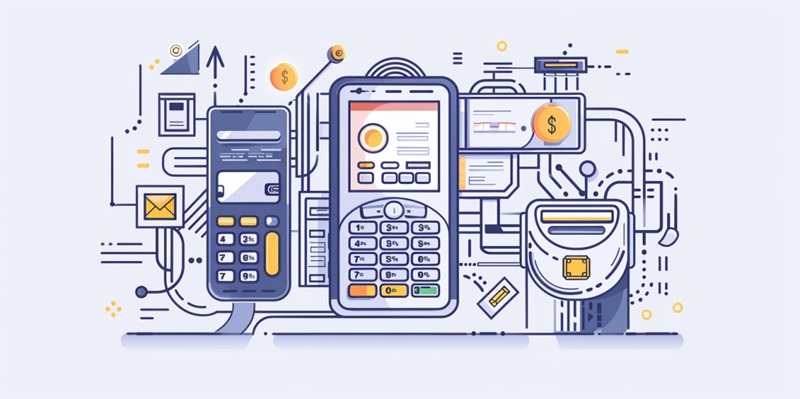The financial landscape has been revolutionized by digital payment innovations, challenging traditional banks. These institutions, once dominant in financial transactions, now face a fiercely competitive environment proliferated by agile fintechs and big tech companies. To stay relevant, venerable banks are pivoting toward digital innovation. They are not only adapting to these changes but are also shaping the digital era by collaborating with technology firms. These alliances aim to blend the reliability of classic banking with the ease of contemporary digital services, providing customers with enhanced banking experiences that are secure and convenient. This evolution epitomizes the banking sector’s commitment to embracing modern technology’s potential to better serve consumer needs and preferences in the digital age.
Digital Partnerships and Innovations
To keep pace with standalone payment providers, traditional banks are joining forces with fintech companies to create cutting-edge financial solutions. These new digital platforms enable customers to conduct banking transactions, such as managing accounts, making transfers, investing, and obtaining loans, all online without visiting a physical branch. Furthermore, banks are heavily investing in digital upgrades, revealing their determination to lead the financial services innovation. An example is BBVA, which has embarked on an impressive digital transformation, signifying the banking industry’s proactive stance to not just adapt but also to drive technological advancements in the sector. These efforts exemplify how legacy financial institutions are redefining their roles and services in response to the growing digital economy, ensuring they remain relevant in a rapidly evolving marketplace.
The Emergence of Mobile Wallets
Smartphone-based payment options like Apple Pay, Google Wallet, and Samsung Pay have revolutionized how we handle transactions. Embracing state-of-the-art security measures, these services facilitate quick and safe payments with just a touch or swipe, epitomizing the shift to mobile financial engagements. Their ease of use has contributed to a noticeable uptick in their acceptance, prompting a growing consumer base to forgo traditional wallets. The widespread presence of smartphones enhances the accessibility of such digital wallets, breaking down previous barriers and expanding the footprint of digital financial services. As these platforms merge convenience with advanced technology, they’re not just an alternative but are becoming the preferred mode of managing financial transactions for many. This global trend is an indicator of how critical mobile devices have become in our daily lives, not only for communication but also as essential tools for financial management.
Transformation in Consumer Behaviour
The growing use of mobile wallets is transforming how we shop and handle money. These digital platforms are not just a passing trend; they fit effortlessly into everyday life. With a mobile wallet, consumers can buy groceries, make online purchases, or send money to friends with just a few taps on their smartphone. As such, there’s a diminishing need for physical cash, which seems increasingly cumbersome.
Mobile wallets’ expanding capabilities, from incorporating reward programs to delivering financial management tools, are redefining consumer expectations around payment methods. The convenience and comprehensive functionality they offer make them an indispensable part of modern financial transactions. Mobile wallet technology is setting a new benchmark, signaling a future where physical wallets may become obsolete. This tech-savvy approach to spending and managing money signifies a shift toward a fully digital economy where ease and efficiency are paramount.
Cryptocurrency and Blockchain Potential
Blockchain and cryptocurrencies are emerging as transformative forces in the digital payment sector. They embody financial innovation that could reduce dependence on established financial mediators through decentralized, secure, and transparent processes. While these technologies are still not fully integrated into mainstream finance, their potential for changing transaction paradigms is significant. Not only have cryptocurrencies become a topic of interest as investments, but they also pose a viable alternative to traditional fiat currencies in everyday purchases. The implications of such a shift reach far beyond current transactional methods, potentially reshaping the economic landscape by offering greater financial control to individuals and mitigating some risks associated with centralized financial systems. As these technologies continue to evolve, the way we understand and engage with money may undergo a profound transformation.
A More Inclusive Economy
The rise of digital payments is reshaping financial accessibility, extending far beyond mere transactional convenience and enhanced security. In underserved areas where traditional banking is scarce, mobile payment platforms are opening doors to the world’s marketplace. This technological leap breaks down formidable financial barriers, allowing digital payments to serve as a catalyst for economic development and stability within emerging markets.
Crucially, this revolution empowers small entrepreneurs and businesses by integrating them more thoroughly into economic streams, democratizing market participation. As such, digital payments hold the promise of distributing the gains of an increasingly digital world economy more equitably, ensuring that emerging economies are not mere onlookers but active participants. This trend has significant potential to level the playing field, giving rise to a more inclusive global economy where opportunity and growth are accessible to a broader base of the world’s population.

